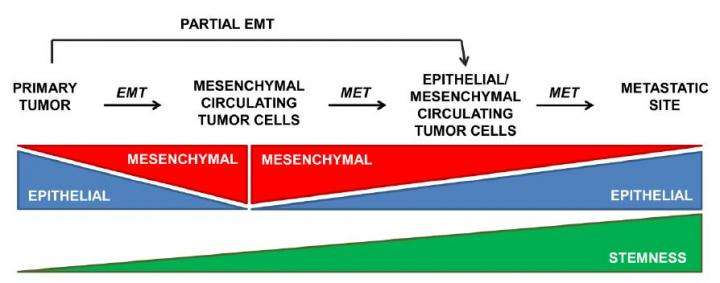Team unveils new TGF-beta functions in liver cancer

Recent research results from the TGF-beta and cancer research group at the Bellvitge Biomedical Research Institute (IDIBELL) provide a better understanding of the role of the TGF-beta cytokine in liver cancer. The work, published in Cancer Letters, shows how the TGF-beta cytokine is able to modulate not only the migratory capacity of the hepatocellular carcinoma cell, but also its capacity as a tumor initiator cell.
TFG-beta plays a dual role in cancer: at the beginning, it acts as a suppressor of tumors, but in advanced stages, it becomes an enhancer. "Previously, we deeply studied the relationship between the tumorigenic potential of TGF-beta and its ability to induce a process known as epithelial-mesenchymal transition, which favors the migration of cancer cells," says Dr. Isabel Fabregat, associate professor at the University of Barcelona and the last author of the paper. "The present work also shows that during that process, TGF-beta could also modulate the tumor cell's ability to behave as a tumor initiator, its 'stemness.'"
"Tumoral cells entering the circulatory or lymphatic system must have migratory capacity to be able to move and invade other body areas, but at the same time, they must also acquire some stemness so that they can metastasize and expand once they have reached their destination," says Fabregat. Epithelial-like cells can act as tumor-initiating cells, but have no migration capability; in contrast, mesenchymal cells have high migratory capacity.
"Curiously, the study shows that those cells with the greatest capacity as tumor initiators are not those of the mesenchymal type, but those that express an epithelial-mesenchyme intermediate phenotype, which would combine stemness with a greater migratory potential. This is the greatest discovery made in our study," adds Fabregat.
More information: Andrea Malfettone et al, Transforming growth factor-β-induced plasticity causes a migratory stemness phenotype in hepatocellular carcinoma, Cancer Letters (2017). DOI: 10.1016/j.canlet.2017.01.037















